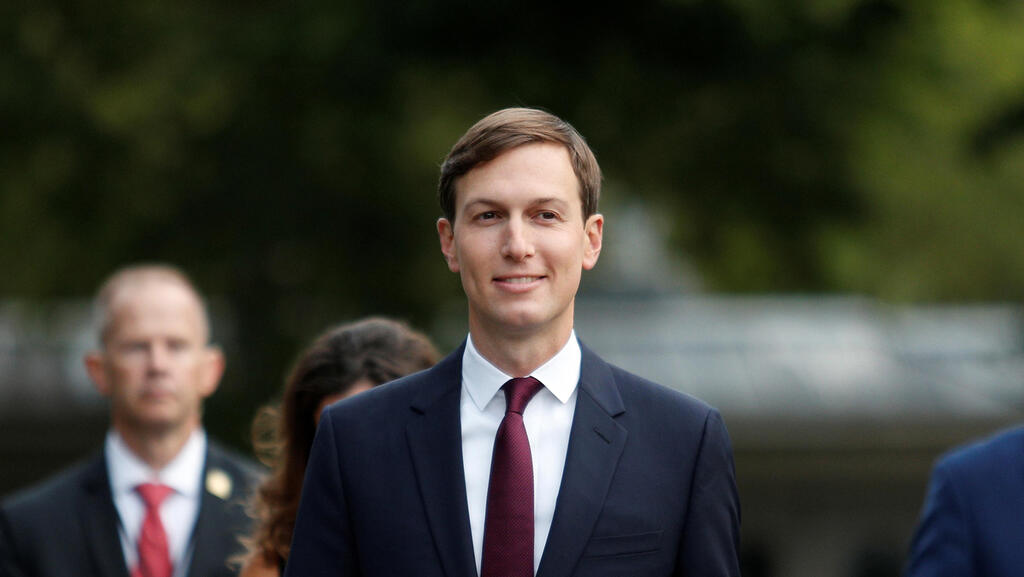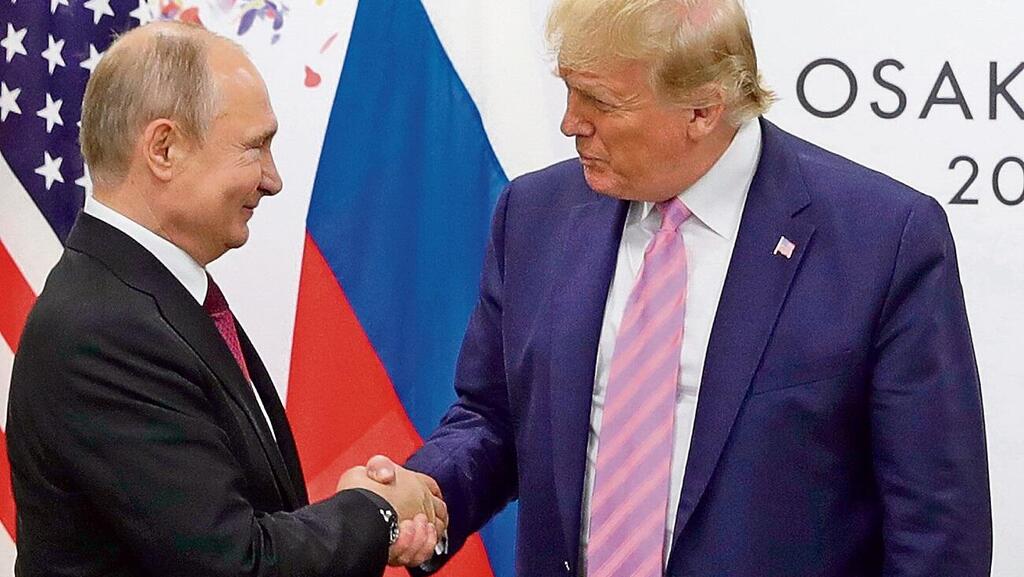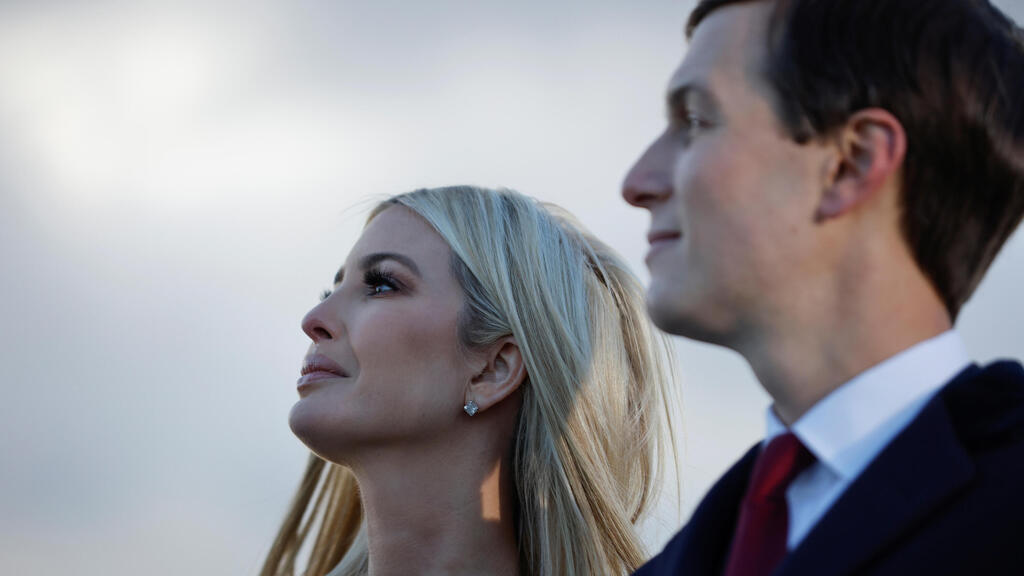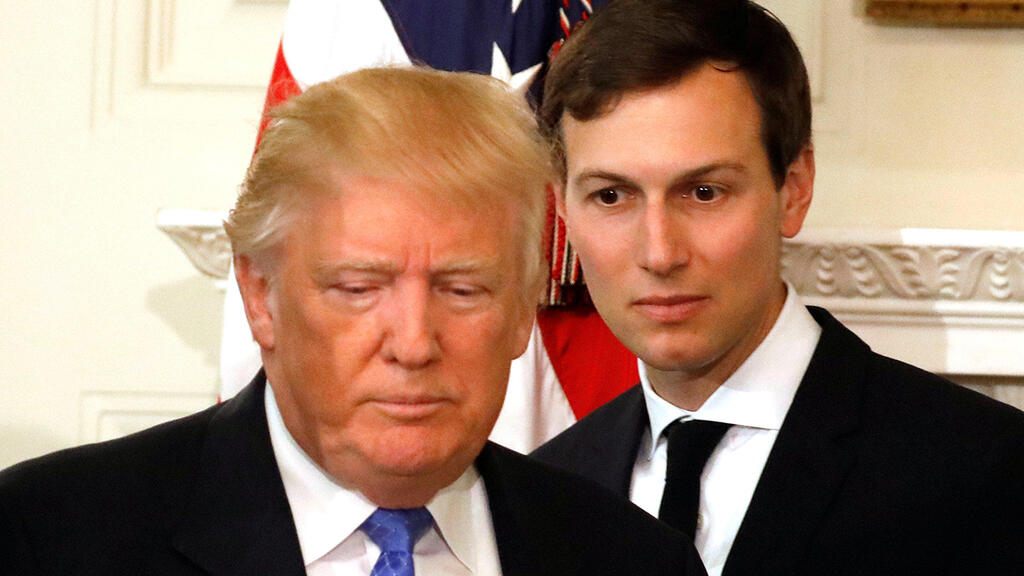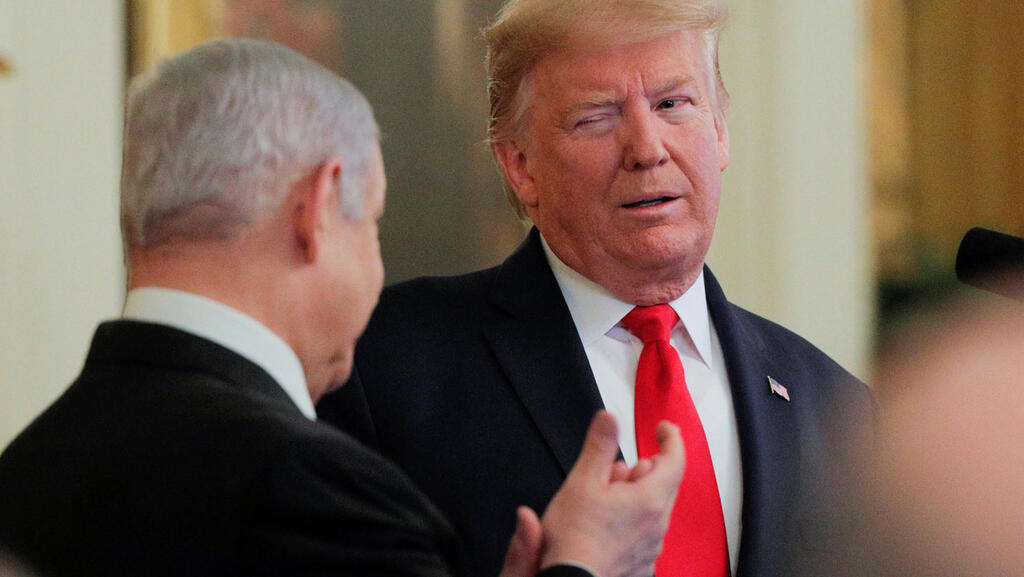Getting your Trinity Audio player ready...
The prevailing practice of ending a story with a happy ending was not invented by Jared Kushner — former U.S. president Donald Trump's son-in-law.
But the fashion in which his autobiography recounts his four tumultuous years in the White House needs a happy and shining ending and for that, Kushner can claim originality.
Many books were written by people who were there and survived to sign lucrative book deals, but few go to such trouble to withhold so much firsthand information as Kushner — stories that could have filled a real tell-all autobiography.
The close relative of the former president did not wait long and his memoir from the time he was Trump's close aide was recently published.
The book is an easy read, full of tense and magical moments, typical of American story-telling.
But does it provide a credible account of the goings-on in the Trump White House over the four years of his term – which some describe as unhinged, and the events that still preoccupy the American discourse?
The answer, it is easy to determine right at the start, is not really. Kushner decided to ignore too many of the issues making headlines these days, and to tiptoe around them to avoid damaging relations with his father-in-law. Family first.
Instead of taking the bull by its horn and recounting the shocking scandals that plagued the presidency, scandals Kushner had front-row seats to observe, he opted to use too light a tone in his book, as if those earth-shaking events were no more than a speck of sand in his eyes during one of his Middle East trips.
Kushner is revealed as an industrious man, who sacrificed a comfortable life as a real-estate mogul, for a challenging life in the service of his father-in-law.
He was undeterred by his fights with Trump advisor Steve Bannon and others set on sidelining him, including allegations he was colluding with Russia, he forged on for the sake of the nation, solved emergencies, advanced important agendas and even succeeded in bringing peace to the Middle East.
As Kushner would have us believe, he was the handsome superhero, a successful ever-young Peter Pan, who for four years, and always in perfectly tailored suits - navigated the halls of power with unending charm, delivering his country to safe harbor from storms that would have crushed it on the cliffs of Washingtonian politics.
All the while his many adversaries and haters plotted his failure, disparaged him and his noble wife Ivanka, leaked malicious reports to the tabloids and laid obstacles on his path to success.
The book has 59 chapters and one must wonder how the author managed to drown the truth of the events in the White House in such a sea of words.
Why he would do so is understandable but to his credit, Kushner succeeded in circumventing any controversial subject.
One example is Trump's relationship with Russian President Vladimir Putin and his regime. Kushner exhibits the agility of a ballet dancer as he clears his own name and ridicules any hint of Russian involvement in the Trump 2016 election campaign. In fact, he repeats often that the media is at fault for its out-of-proportion reporting.
The mountain of evidence accumulated in this yet unresolved question does not bother the presidential aide. He must embed a perception, frame a mindset and end this nuisance that has bothered the entire first family so.
In chapter 12 of his book, Kushner describes how he prepared for his testimony in front of the Senate select committee and recounts a meeting with a frustrated Trump who walked into his room and sat down lamenting the latest headlines.
"You are too hot right now," the president said. "Did you do anything wrong? You must clear yourself and fix this."
Dramatic indeed. After all the investigations and investigative reporting, Kushner emerged white as snow. It seems Trump could not stand Putin and the entire ordeal was the making of the fake news media.
Jared and Ivanka succeeded in uniting opponents in the White House and the administration, starting with the out-of-control Bannon, former White House Chief of Staff John Kelly and even Secretary of State Rex Tillerson who was getting on Trump's nerves and was ultimately fired in a Twitter post.
Kushner, who had nothing but good intentions at heart, describes how he fought Tillerson over the proposals for a Mid-East peace plan. The secretary, Kushner wrote, did not like the idea that an aide to the president was taking charge on a matter of such importance. Tillerson in his anger was obstructive. So what did Peter Pan do? He booked a flight to Israel.
Yada, yada, yada. Ultimately, there was no peace deal with the Palestinians, as Trump had hoped, but a few chapters later, and after many hours of flights around the Middle East, the Abraham Accords were finally signed, and the matter of West Bank annexation was laid to rest. Not a bad result, considering Tillerson.
In another example, Kushner recounts how his daughter Arabella contributed to the warming of ties between Trump and Chinese President Xi Jinping.
The talented Arabela Kushner sang for Xi in Chinese at Trump's Mar-a-Lago Club in Florida to the visiting president's delight.
Yada, yada, yada, the trade crisis was averted and after tough negotiations, the Chinese capitulated to Trump's demands and signed deals that improved U.S. standing.
The book goes on and on to describe how Trump negotiated the USMCA deal by threatening Mexico that the U.S. criminal reforms would be canceled and COVID aid withheld.
In fact, Kushner fails to recognize any culpability on the part of the president in any deaths from the pandemic and lays the blame on Trump's predecessor Barak Obama for depleting the emergency stores.
Here too the wizard stepped in and after making a few phone calls and pulling some strings managed the impossible — a Pfizer vaccine has hit the market within less than one year and stores once again full of needed medical supplies.
On the major crisis with NATO and European allies, Kushner only wrote sparingly and mostly hails Trump for his warnings about Russia, Ukraine, the Nord Stream 2 gas pipeline and the lack of funds invested by Europe in their militaries.
The author's lack of desire to tackle the more difficult questions regarding Trump's term is most evident considering the fact that bookshelves are already filling up with amazing recounts of the era.
Peter Baker and Susan Glasser's The Divider and Maggie Haberman's Confidence Man join Bob Woodward's contemporary Fear, Rage, Peril in providing a mirror image to Kushner's accounts.
They take the Trump presidency head-on and present its chaos as it was. Kushner wraps the chaotic White House in pink cellophane.
There is not one word about the divisiveness that so characterizes Trump even now. Not a word about the attempt to overturn the election results or the president's part in instigating the January 6 riots in the Capital.
They are all missing from Kushner's accounts and require not a moment of introspection on his part. They were small insignificant episodes in Kushner's view as can be inferred by their virtual absence from his accounts. Even with Trump's delusional behavior after losing the elections, Kushner presents sympathy for the president's pain.
Still, to Israeli fans of the former president, Kushner delivers a long list of meetings and events involving Israelis – chief among them former prime minister Benjamin Netanyahu.
Even Benny Gantz appears in the book for a brief moment. Trump, according to Kushner, wanted to embrace Gantz in order to anger Netanyahu, who was being annoying.
One of the more powerful quotes in the book on the matter refers to the American president's reaction to a speech Netanyahu made during a visit to the White House announcing, in contradiction to earlier agreements, that Israel will annex parts of the West Bank and the administration is expected to support the move.
An angered Trump told Kushner Netanyahu had made a political speech and dragged the president into it.
In order to read a serious account of the Trump presidency, Kushner's book should not be the first choice. Followers of American politics have plenty of other options available.
But if a reader finds accounts of Netanyahu planting trees in Israel on behalf of Kushner to be moving, and if the ceremony naming a room at the American embassy in Jerusalem after Kushner is tantalizing to the reader, then this is certainly a worthwhile read.
It has plenty of such items of gossip, many stories about the author himself and can provide much about the Kushner family history, including his father's prison term and even the young Kushner's talent to make a fortune.


